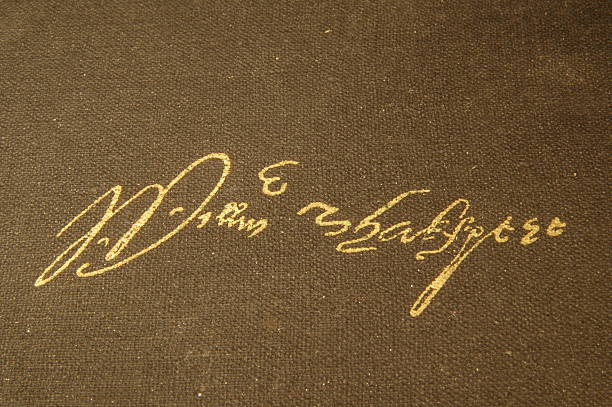In an age of rapid-fire texts, viral memes, and casual DMs, it’s easy to overlook the quiet power of courteous writing .
Yet politeness in language — whether in poetry, prose, or digital communication — carries a kind of emotional elegance , shaping how we’re perceived, how we connect with others, and even how we build trust online.
This article explores:
- The poetic beauty of polite language
- How courteous writing builds deeper human connections
- Why respect in words still matters — from emails to social media
- Practical tips for integrating politeness into modern communication
Let’s dive into the enduring value of The Poetics of Politeness .
What Is Courteous Writing?
Courteous writing isn’t just about saying “please” and “thank you.” It’s about crafting messages that show respect , empathy , and consideration — regardless of medium.
Elements of Courteous Language:
- Clear, respectful tone
- Thoughtful word choice
- Empathetic phrasing
- Gratitude and acknowledgment
- Awareness of audience and context
Whether you’re drafting an email, writing a love letter, or sending a flirty text, the way you say something often matters more than what you say .
The Historical Roots of Polite Expression
Politeness has long been a cornerstone of literary and conversational style.
From Jane Austen’s delicate social maneuvering to Emily Dickinson’s gentle invitations , literature shows how politeness can be powerful — not passive.
Even in formal letters, poets, philosophers, and diplomats used careful language to avoid offense while expressing strong opinions.
Examples:
“I would be honored…” – Jane Austen
“If I may be so bold…” – Victorian-era persuasion
“Would you permit me to share…” – Classical courtship letters
These phrases weren’t just decorum — they were tools of connection , influence , and grace .
Why Politeness Still Matters Today
Despite the rise of informal communication, courtesy remains vital — especially in professional, romantic, and customer-facing contexts.
1. Builds Trust
Polite language invites openness and reduces defensiveness. Whether in business or personal life, people respond better to kindness than confrontation.
2. Enhances Professional Relationships
A simple “Thank you for your time” or “I appreciate your help” can strengthen relationships, encourage collaboration, and improve team morale.
3. Makes Digital Communication More Human
In a world where AI-generated content floods our feeds, a well-worded message stands out — and feels personal.
4. Strengthens Emotional Bonds
Polite speech fosters mutual respect — especially in intimate conversations. It helps avoid misinterpretation and emotional friction.
5. Encourages Social Harmony
Even in heated debates, courteous writing allows room for dialogue — rather than division.
The Psychology Behind Politeness in Language
Why does polite language work so well across cultures and generations?
🧠 Insight From Social Psychology:
Studies show that language shapes perception . When people feel respected in conversation, they’re more likely to reciprocate with openness and cooperation.
The Golden Rule of Politeness:
People do things for people who make them feel good — not just persuasive arguments.
Polite writing makes the recipient feel seen, heard, and valued — which increases influence without force.
How to Practice Courteous Writing in Different Contexts
Here’s how to apply poetic politeness in real-life writing situations.
In Emails (Professional & Personal)
Avoid sounding robotic or abrupt. Instead, write with warmth and clarity.
Before:
❌ “Can you send this over by tomorrow?”
After:
✅ “Would you mind sharing this by tomorrow? I’d really appreciate it.”
💡 Why It Works: Softens requests and shows appreciation.
In Text Messaging (Dating & Friendship)
Even in casual settings, politeness adds charm and depth.
Try These:
✅ “Thanks for checking in — means a lot.”
✅ “I hope now’s a good time to talk.”
✅ “Just wanted to say hi — no pressure to reply!”
These lines keep interactions warm and emotionally safe.
In Content Creation (Blogs, Social Media, Marketing)
Polite language improves engagement and reader loyalty.
Example:
🚫 “You need to know this.”
✅ “I thought you might find this helpful — thanks for reading!”
Readers are more likely to engage when they feel invited — not instructed.
In Romantic Communication
Polite flirting isn’t outdated — it’s timeless.
Good vs. Bad Flirtatious Tone:
🚫 “Hey beautiful — let’s hang out.”
✅ “Your presence seems like the kind of joy I’d want to experience in person.”
Politeness doesn’t mean distance — it means mutual comfort and respect .
In Sales & eCommerce
Polite sales copy doesn’t push — it persuades gently.
Example:
🚫 “Don’t miss out — buy now!”
✅ “If this resonates with you, feel free to explore — no rush at all.”
This approach respects autonomy — and often leads to higher conversion rates.
Frequently Asked Questions (FAQ)
Q: Is being polite outdated in modern communication?
A: No — politeness has evolved, not disappeared. It’s now more about emotional intelligence than old-fashioned formality.
Q: Can polite writing be assertive too?
A: Absolutely. You can be firm yet respectful. 🚫 “Send this today or lose the deal.”
✅ “We’d love to finalize this soon — thank you for your attention.”
Q: Does politeness affect SEO or content performance?
A: Yes — polite, engaging language improves dwell time, shares, and brand reputation.
Q: Should I always be polite in messaging?
A: Always — but adjust tone based on context. Politeness doesn’t mean being passive; it means being intentional.
Q: Is there a cultural difference in what’s considered polite?
A: Yes — always consider cultural norms and individual preferences when communicating.
Final Thoughts
Politeness in writing isn’t about being soft — it’s about being smart, sensitive, and strategic .
Whether you’re drafting a proposal, texting a date, or writing a blog post, courteous language invites connection — and builds lasting relationships.
Because in a world full of noise, the most powerful words are the ones that make people feel heard .
So next time you write — choose kindness, clarity, and grace.
After all, good writing doesn’t just inform — it honors .





